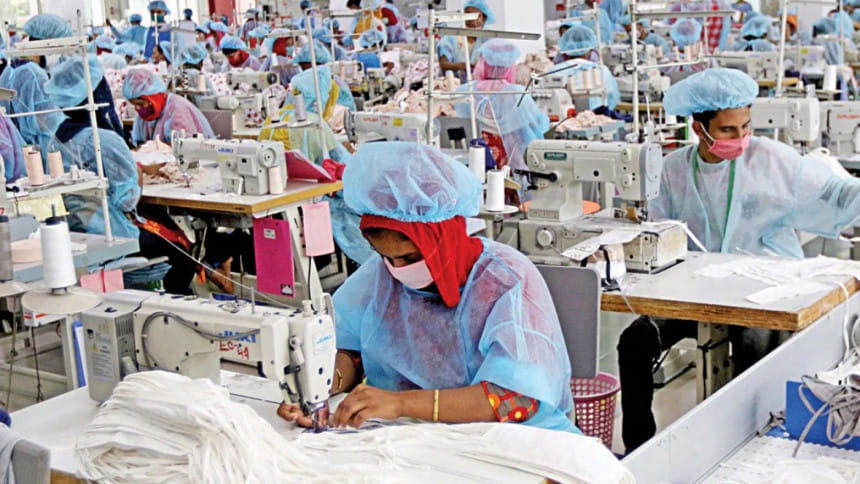Responsible investors can transform fashion supply chains

In a world that is becoming increasingly conscious of the environmental and social challenges it faces, many investors are playing a pivotal role in reshaping the business landscape. These conscientious individuals and organisations are not just seeking financial returns, but also advocating for ethical and sustainable practices in the companies they invest in. Fashion and textile supply chains stand to benefit greatly from the rise of the responsible investor.
One of the fundamental benefits of responsible investors is their focus on sustainable growth rather than short-term profits. Short-termism has always been an issue in fashion and has arguably been one of the root causes of environmental and social problems we see in fashion supply chains.
In contrast, by prioritising long-term success, these investors encourage companies to develop strategies that are not only economically viable, but also environmentally and socially responsible. This forward-thinking approach leads to the creation of businesses that are less susceptible to market fluctuations and better positioned for the long run.
Responsible investors often emphasise ESG (environmental, social, and governance) criteria when making investment decisions. By scrutinising these aspects, these investors help companies adopt practices that reduce their environmental footprint, improve their relationships with stakeholders, and enhance overall governance. This not only benefits investors, but also contributes to the greater good by addressing pressing global challenges like climate change and social inequality.
Fashion and its supply chains can benefit financially from responsible investment. This is because companies that prioritise sustainability and ethical practices are more likely to attract a broader investor base. Responsible investors are not alone in their pursuit of sustainable business; an increasing number of mainstream investors are recognising the benefits of these practices.
This diversification of investors can offer numerous advantages to businesses. It can lower their cost of capital, reduce financial risks, and enhance their reputation in the market. Furthermore, a larger investor base means access to a broader range of expertise, which can help companies develop innovative solutions and navigate complex sustainability challenges.
Responsible investors can also be seen as the watchdogs of corporate behaviour. By investing in companies that uphold strong ethical and sustainability standards, they not only promote responsible business practices, but also help build and maintain a positive brand reputation.
In turn, a strong brand reputation can significantly influence consumer behaviour. Companies known for their ethical and sustainable practices are more likely to gain the trust and loyalty of customers. Moreover, such companies are better equipped to attract and retain top talent, as many employees are increasingly looking for organisations that align with their values.
Responsible investors also play a crucial role in encouraging innovation. By prioritising sustainability and ethical practices, they push companies to explore new technologies and business models that are more environment-friendly and socially responsible. This leads to the development of products and services that are not only better for the planet but also more appealing to consumers. Investors who promote responsible practices often push for research and development in areas such as renewable energy, clean technology, and sustainable agriculture, which benefit society as a whole.
Sustainability is not just about doing good; it's also about managing risk effectively. Responsible investors recognise the financial and reputational risks associated with companies that disregard environmental and social considerations. By advocating for responsible practices, they help businesses minimise these risks.
For instance, companies that invest in environmentally responsible practices are less likely to face costly lawsuits, regulatory fines or reputational damage related to environmental violations. Similarly, those that prioritise fair labour practices are less exposed to controversies and boycotts stemming from labour disputes.
One of the fundamental benefits of responsible investors is their focus on sustainable growth rather than short-term profits. Short-termism has always been an issue in fashion and has arguably been one of the root causes of environmental and social problems we see in fashion supply chains.
Responsible investors extend their influence beyond the corporate boardrooms and financial markets. They create a ripple effect that benefits society at large. When companies align with sustainable and ethical values, they contribute to the betterment of society in numerous ways.
By reducing their carbon footprint, companies address climate change and promote a healthier planet. Ethical labour practices improve the livelihoods of workers and create a fairer society. Additionally, responsible governance practices enhance transparency and accountability, fostering trust in the business world.
Moreover, companies that engage in corporate philanthropy or support social initiatives make direct contributions to societal welfare. Responsible investors, by pushing for such initiatives, catalyse positive change in their communities and beyond.
As the world grapples with pressing challenges like climate change, social inequality, and environmental degradation, responsible investors are beacons of hope, as they can truly be transformative agents of change.
Mostafiz Uddin is the managing director of Denim Expert Limited. He is also the founder and CEO of Bangladesh Denim Expo and Bangladesh Apparel Exchange (BAE).
Views expressed in this article are the author's own.
Follow The Daily Star Opinion on Facebook for the latest opinions, commentaries and analyses by experts and professionals. To contribute your article or letter to The Daily Star Opinion, see our guidelines for submission.

 For all latest news, follow The Daily Star's Google News channel.
For all latest news, follow The Daily Star's Google News channel. 











Comments